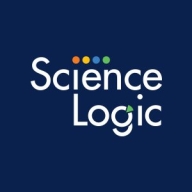

ScienceLogic and DX NetOps are compared based on various factors. ScienceLogic users are happier with support and pricing, while DX NetOps stands out for its robust features, making it worth the investment.
Features: ScienceLogic offers automated discovery, real-time monitoring, and cloud management. DX NetOps has comprehensive network visibility, advanced analytics, and performance monitoring. DX NetOps provides deeper insights, giving it an edge in features.
Room for Improvement: ScienceLogic could improve scalability, third-party integration, and user interface. DX NetOps needs more intuitive configuration, enhanced reporting capabilities, and better scalability. ScienceLogic’s integration limitations are more frequently highlighted by users.
Ease of Deployment and Customer Service: ScienceLogic is noted for quick deployment and responsive support. DX NetOps receives favorable deployment reviews but shines in customer service due to detailed support resources. Both are well-regarded, with DX NetOps slightly ahead in customer satisfaction.
Pricing and ROI: ScienceLogic is commended for competitive pricing and ROI. DX NetOps, though more expensive, justifies its cost through superior performance and features. Users recognize the higher expense but believe the ROI balances out over time, giving DX NetOps a slight advantage in overall value.
It can save you the cost of the product by reducing expenses and downtimes in 12 to 18 months.
The return on investment is fair but often challenged by medium-sized businesses who may question its adequacy.
They are fast, responsive, and have technical expertise.
I received excellent support from ScienceLogic.
Problems with Skylar may require longer wait times due to limited resource expertise.
We have a lab environment to test solutions before offering them to customers, ensuring everything works correctly.
The product is very scalable, to the maximum.
I rate the stability of the product as ten on a scale of one to ten, indicating that it is very stable.
The stability rating is nine out of ten, acknowledging some bugs, but indicating these are minor issues.
DX NetOps is somewhat convoluted, and some of the programming constructs can be documented or driven through languages such as Python, Perl, and shell scripting, but they have their proprietary language, which may not be very user-friendly.
It would be useful to have more AI features.
While some other companies have easier APIs, using this solution demands significant expertise.
If the knowledge for implementation could be spread through articles, it would reduce this dependency.
Integrating observability and APM monitoring into the overall portfolio would be beneficial.
The licensing cost of DX NetOps is expensive, not very affordable, and on the top of the price range in the market.
I think the pricing is expensive.
It could be cheaper.
ScienceLogic is not that expensive and is cost-effective overall.
The product features include automation through AI, allowing out-of-the-box analysis of performance data, building baseline trends, and enabling configuration of dynamic thresholds relative to collected data.
The best features I've seen so far with DX NetOps are that it can work with large scale systems, and it has a lot of functionalities and matrices.
Notably, its automation features, such as Runbook action, enable domain experts like me to execute one-click automation solutions, which contributes significantly to reducing MTTR.
It offers over 500 integrations with a wide range of device types, referred to as PowerPacks, which are prebuilt integrations for hundreds, if not thousands, of integration types.
The CMDB update and the automatic CMDB update are valuable.
| Product | Market Share (%) |
|---|---|
| ScienceLogic | 1.2% |
| DX NetOps | 0.6% |
| Other | 98.2% |


| Company Size | Count |
|---|---|
| Small Business | 4 |
| Midsize Enterprise | 1 |
| Large Enterprise | 3 |
| Company Size | Count |
|---|---|
| Small Business | 13 |
| Midsize Enterprise | 11 |
| Large Enterprise | 24 |
DX NetOps by CA Technologies, a Broadcom company, improves your time to value through advanced AI capabilities and unified network visibility that delivers simplified NetOps intelligence into the user experience that traverses modern architectures. DX NetOps accomplishes this through high scale, unified network monitoring that enables full-stack analytics for assuring traditional and modern architectures. DX NetOps converts inventory, topology, device metrics, faults, flow and packet analysis into actionable intelligence for network operations teams. Complimented by our AIOps solution, DX NetOps enables IT teams to establish proactive, autonomous remediation capabilities across the applications, infrastructure, and networks that fuel superior user experiences.
ScienceLogic excels in customizable dashboards, seamless integrations, and real-time data analysis, supporting diverse IT environments with multi-tenant capabilities.
ScienceLogic provides robust infrastructure and network monitoring, catering to cloud, applications, and server environments. It supports hybrid setups, integrating with CMDB and ticketing systems while automating incident management. ScienceLogic's PowerPacks eliminate visibility gaps and its adaptable nature supports modern and legacy systems. Offering agentless monitoring, it ensures efficient operations with scalable infrastructure support and detailed reporting. However, the interface complexity and need for professional support can present usability challenges. Enhancements in reporting, application coverage, API support, and customization are desirable for improved user experience.
What are ScienceLogic's most important features?ScienceLogic is often implemented across industries requiring detailed attention to infrastructure and network monitoring. It finds utility in managing hybrid environments, integrating seamlessly with essential systems like CMDB and ticketing platforms. Its scalability and adaptability are valued in unifying complex, diverse environments under one monitoring platform.
We monitor all Network Monitoring Software reviews to prevent fraudulent reviews and keep review quality high. We do not post reviews by company employees or direct competitors. We validate each review for authenticity via cross-reference with LinkedIn, and personal follow-up with the reviewer when necessary.